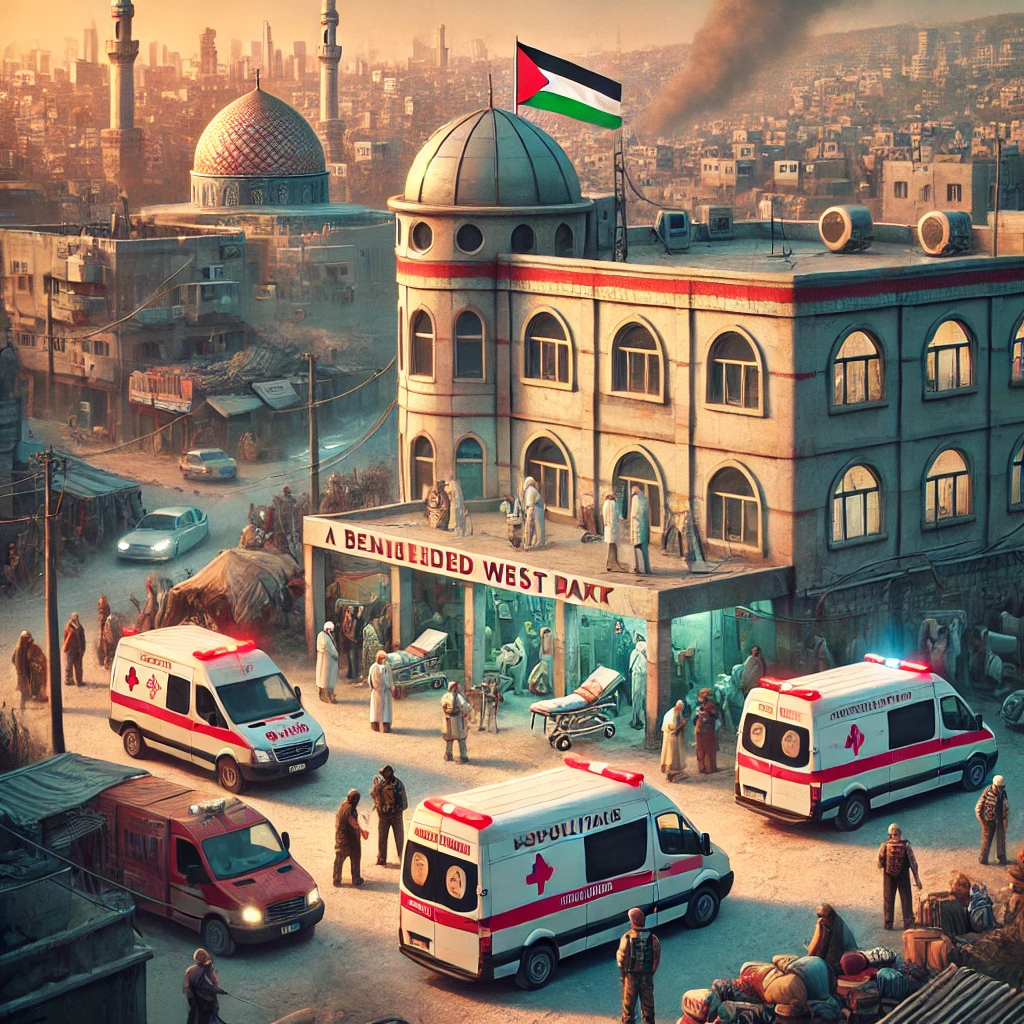
The West Bank witnessed a significant escalation of tensions as Israeli forces besieged a Palestinian government hospital in Jenin and a nearby refugee camp. This development has drawn widespread attention, marking a turning point in the region’s security landscape and raising concerns about the humanitarian consequences of such actions.
Israeli Defence Minister Israel Katz described the operation as “a shift in security strategy,” emphasizing that it aims to address ongoing threats in the area. This strategy, however, has faced widespread criticism for its immediate impact on the civilian population, particularly those in need of urgent medical care.
The Humanitarian Impact
The Palestinian Red Crescent has reported severe challenges in reaching those affected by the siege. Ambulances have been unable to access the dead and wounded, leaving many in life-threatening conditions without the necessary medical attention. According to Red Crescent officials, the blockade has created a dire situation, with medical supplies and emergency care rendered inaccessible.
Local sources have shared harrowing accounts of families trapped within the affected areas. Residents of the refugee camp and surrounding regions have highlighted the lack of food, water, and essential resources, further exacerbating the already precarious living conditions.
Humanitarian organizations worldwide have condemned the situation, calling for immediate measures to allow safe passage for medical aid and relief workers. “Blocking access to medical care violates international humanitarian law and endangers the lives of countless individuals,” stated a representative from a leading global aid organization.
Broader Implications
This operation comes amidst a backdrop of escalating tensions in the West Bank. Over the past months, there has been an increase in confrontations between Israeli forces and Palestinian groups, with both sides sustaining casualties. Analysts suggest that this latest move may significantly alter the dynamics of the conflict.
Observers have noted that the siege of Jenin highlights a broader shift in Israeli military tactics. The focus on strategic locations, such as hospitals and refugee camps, has drawn criticism from human rights organizations and members of the international community. Questions have been raised regarding the proportionality and necessity of such actions, particularly given their impact on civilians.
Calls for International Intervention
As the situation unfolds, calls for international intervention have grown louder. Diplomats from various countries have urged Israel to reconsider its approach and ensure compliance with international humanitarian standards.
“We urge all parties to exercise restraint and prioritize the safety of civilians,” said a spokesperson for the United Nations. “Humanitarian access must be granted immediately to prevent further loss of life and suffering.”
Meanwhile, local Palestinian leaders have appealed for solidarity and support from the global community. “This is not just a political issue; it is a humanitarian crisis that demands immediate action,” one leader remarked during a press conference.
Voices from the Ground
Accounts from residents and healthcare workers in Jenin paint a grim picture of the current situation. A nurse working at the besieged hospital described the atmosphere as “tense and chaotic,” with staff struggling to provide care amidst dwindling resources.
“We’re running out of supplies, and the constant fear of attacks makes it even harder to focus on our work,” she said. Residents of the refugee camp echoed these sentiments, emphasizing the urgent need for food, water, and medical assistance.
One resident shared how families have resorted to rationing whatever little they have left. “We are in survival mode. The children are scared, and we don’t know how long this will last,” he said, his voice filled with despair.
Looking Ahead
The siege in Jenin serves as a stark reminder of the fragility of peace in the region and the devastating human cost of conflict. As international pressure mounts, the hope remains that diplomatic efforts can pave the way for a resolution that prioritizes the safety and well-being of civilians.
For now, the world watches as the situation in the West Bank continues to evolve. Focus Global News remains committed to providing in-depth and accurate reporting on this critical issue, ensuring that the voices of those affected are heard.





